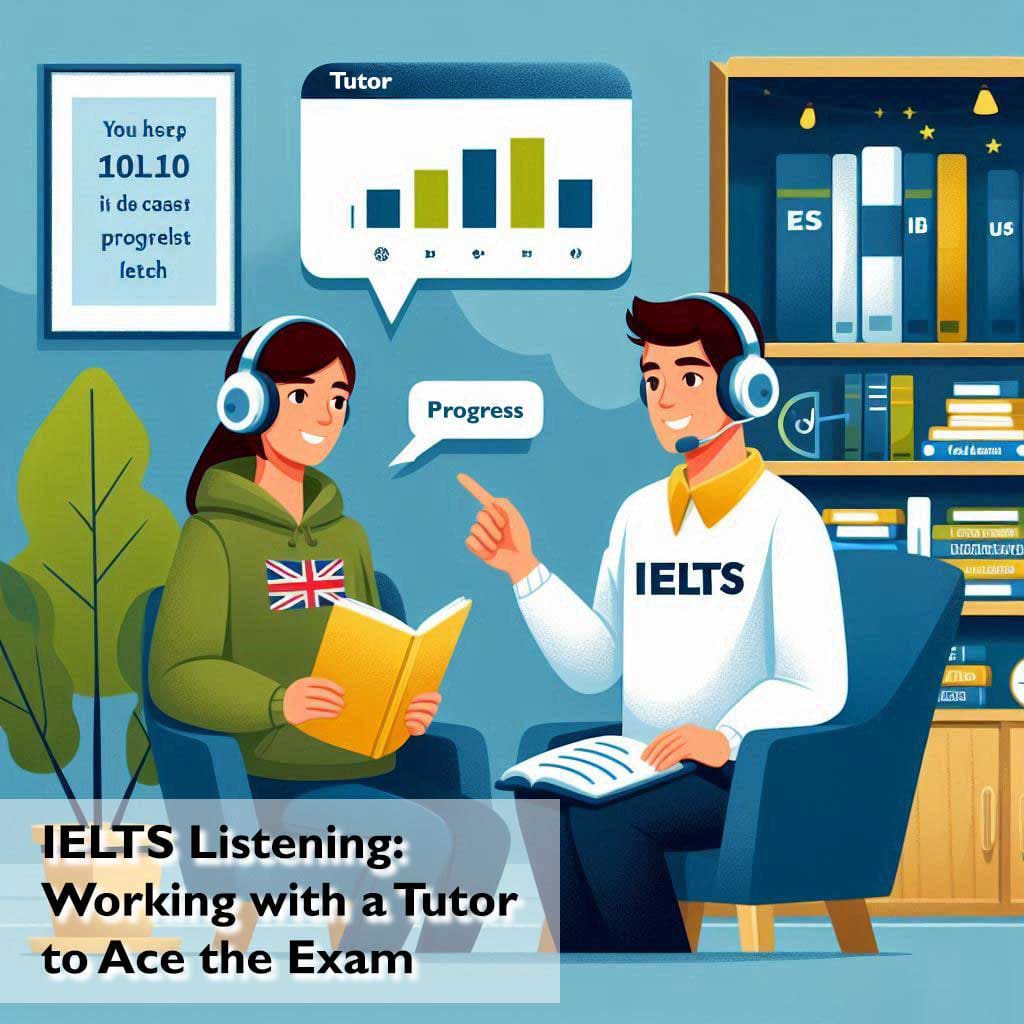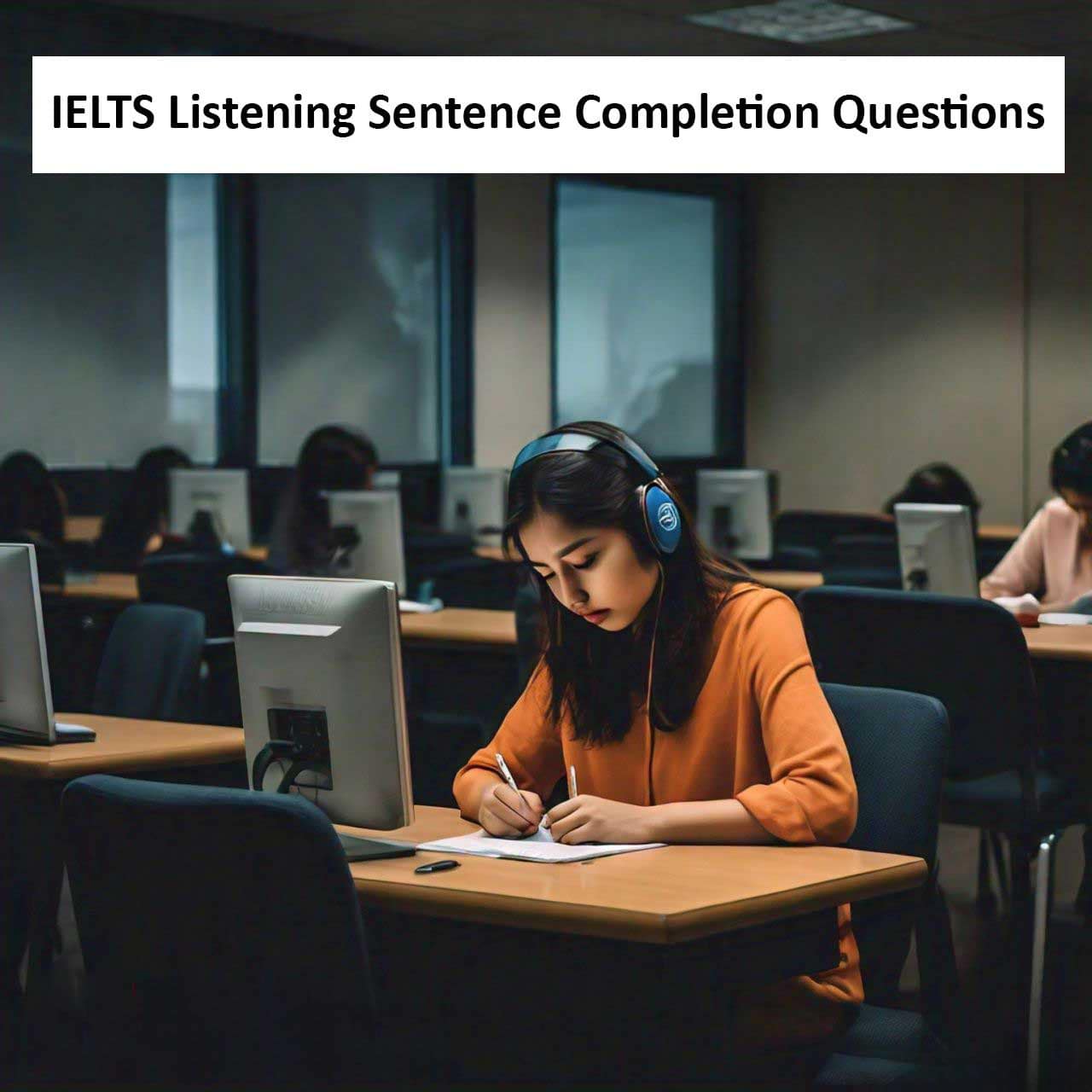Preparing for the IELTS Listening test can be a daunting task, especially if you are aiming for a high score to secure admission to a top university or meet immigration requirements. One effective strategy to enhance your listening skills and boost your confidence is working with a tutor. In this blog post, we’ll explore the benefits of working with a tutor, what to expect during your tutoring sessions, and tips on how to make the most of this personalized learning experience.
Table of Contents
Why Work with a Tutor?
1. Personalized Feedback:
A tutor can provide tailored feedback that addresses your specific weaknesses. Unlike self-study materials, a tutor can analyze your performance in real-time, pinpointing areas that need improvement and suggesting targeted strategies.
2. Structured Learning:
A tutor can help you create a structured study plan, ensuring that you cover all aspects of the IELTS Listening test comprehensively. This structured approach can be more effective than random practice sessions, keeping you on track and motivated.
3. Improved Listening Skills:
Listening to authentic English materials under the guidance of a tutor can significantly enhance your listening skills. Tutors can expose you to various accents and speeds of speech, which are critical components of the IELTS Listening test.
4. Test-Taking Strategies:
Experienced tutors can teach you valuable test-taking strategies, such as how to effectively use the time given, how to anticipate answers, and how to tackle different question types like multiple choice, matching, and note completion.
What to Expect During Tutoring Sessions
1. Diagnostic Assessment:
Your tutoring journey typically begins with a diagnostic assessment. This initial test helps your tutor identify your current level and specific areas of weakness. Based on this assessment, your tutor will design a customized study plan.
2. Practice with Authentic Materials:
Tutors often use authentic IELTS Listening materials, including past papers and sample tests. Practicing with these materials helps you become familiar with the test format and question types.
3. Focused Listening Exercises:
During your sessions, you will engage in focused listening exercises that target specific skills such as identifying key information, understanding details, and following a conversation. These exercises can include listening to lectures, conversations, and news reports.
4. Interactive Activities:
Tutors incorporate interactive activities such as discussions, role-plays, and simulations to make the learning process engaging. These activities help you improve not only your listening skills but also your overall communication skills.
5. Regular Feedback and Progress Tracking:
One of the key benefits of working with a tutor is receiving regular feedback. Your tutor will monitor your progress, provide constructive criticism, and adjust the study plan as needed. This ongoing feedback loop helps you stay focused and continuously improve.
Tips for Making the Most of Your Tutoring Sessions
1. Set Clear Goals:
Before starting your tutoring sessions, set clear, achievable goals. Whether it’s improving your overall score, mastering specific question types, or overcoming difficulties with certain accents, having clear goals will help you and your tutor stay focused.
2. Be Proactive:
Take an active role in your learning. Ask questions, seek clarification, and communicate openly with your tutor about any challenges you face. The more engaged you are, the more you will benefit from the sessions.
3. Practice Regularly:
Consistent practice is key to improvement. In addition to your tutoring sessions, set aside time for self-study. Your tutor can provide you with practice materials and recommend additional resources to enhance your learning.
4. Review and Reflect:
After each session, review your notes and reflect on the feedback provided by your tutor. Identify areas where you made mistakes and understand why. This reflection process will help you avoid repeating the same errors.
5. Stay Motivated:
Preparing for the IELTS Listening test can be challenging, but staying motivated is crucial. Celebrate your progress, no matter how small, and keep reminding yourself of your ultimate goal, whether it’s studying abroad, working in an English-speaking country, or achieving personal growth.
Conclusion
Working with a tutor can significantly enhance your preparation for the IELTS Listening test. The personalized feedback, structured learning, and targeted practice provided by a tutor can help you develop the skills and confidence needed to succeed. By setting clear goals, staying proactive, practicing regularly, and maintaining motivation, you can make the most of your tutoring sessions and achieve your desired score. Remember, with the right guidance and dedication, acing the IELTS Listening test is within your reach.



